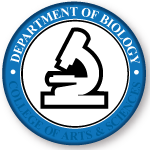Document Type
Article
Publication Date
11-13-2015
Publication Title
PLoS One
Volume
10
Issue
11
Abstract
Neoplasms of extra-thymic T-cell origin represent a rare and difficult population characterized by poor clinical outcome, aggressive presentation, and poorly defined molecular characteristics. Much work has been done to gain greater insights into distinguishing features among malignant subtypes, but there also exists a need to identify unifying characteristics to assist in rapid diagnosis and subsequent potential treatment. Herein, we investigated gene expression data of five different mature T-cell lymphoma subtypes (n = 187) and found 21 genes to be up- and down-regulated across all malignancies in comparison to healthy CD4+ and CD8+ T-cell controls (n = 52). From these results, we sought to characterize a role for caveolin-1 (CAV1), a gene with previous description in the progression of both solid and hematological tumors. Caveolin-1 was upregulated, albeit with a heterogeneous nature, across all mature T-cell lymphoma subtypes, a finding confirmed using immunohistochemical staining on an independent sampling of mature T-cell lymphoma biopsies (n = 65 cases). Further, stratifying malignant samples in accordance with high and low CAV1 expression revealed that higher expression of CAV1 in mature T-cell lymphomas is analogous with an enhanced inflammatory and invasive gene expression profile. Taken together, these results demonstrate a role for CAV1 in the tumor microenvironment of mature T-cell malignancies and point toward potential prognostic implications.
Recommended Citation
Herek, Tyler A.; Shew, Timothy D.; Spurgin, Heather N.; and Cutucache, Christine E., "Conserved Molecular Underpinnings and Characterization of a Role for Caveolin-1 in the Tumor Microenvironment of Mature T-Cell Lymphomas" (2015). Biology Faculty Publications. 74.
https://digitalcommons.unomaha.edu/biofacpub/74
Files over 3MB may be slow to open. For best results, right-click and select "save as..."
Included in
Funded by the University of Nebraska at Omaha Open Access Fund


Comments
© 2015 Herek et al. This is an open access article distributed under the terms of the Creative Commons Attribution License, which permits unrestricted use, distribution, and reproduction in any medium, provided the original author and source are credited.